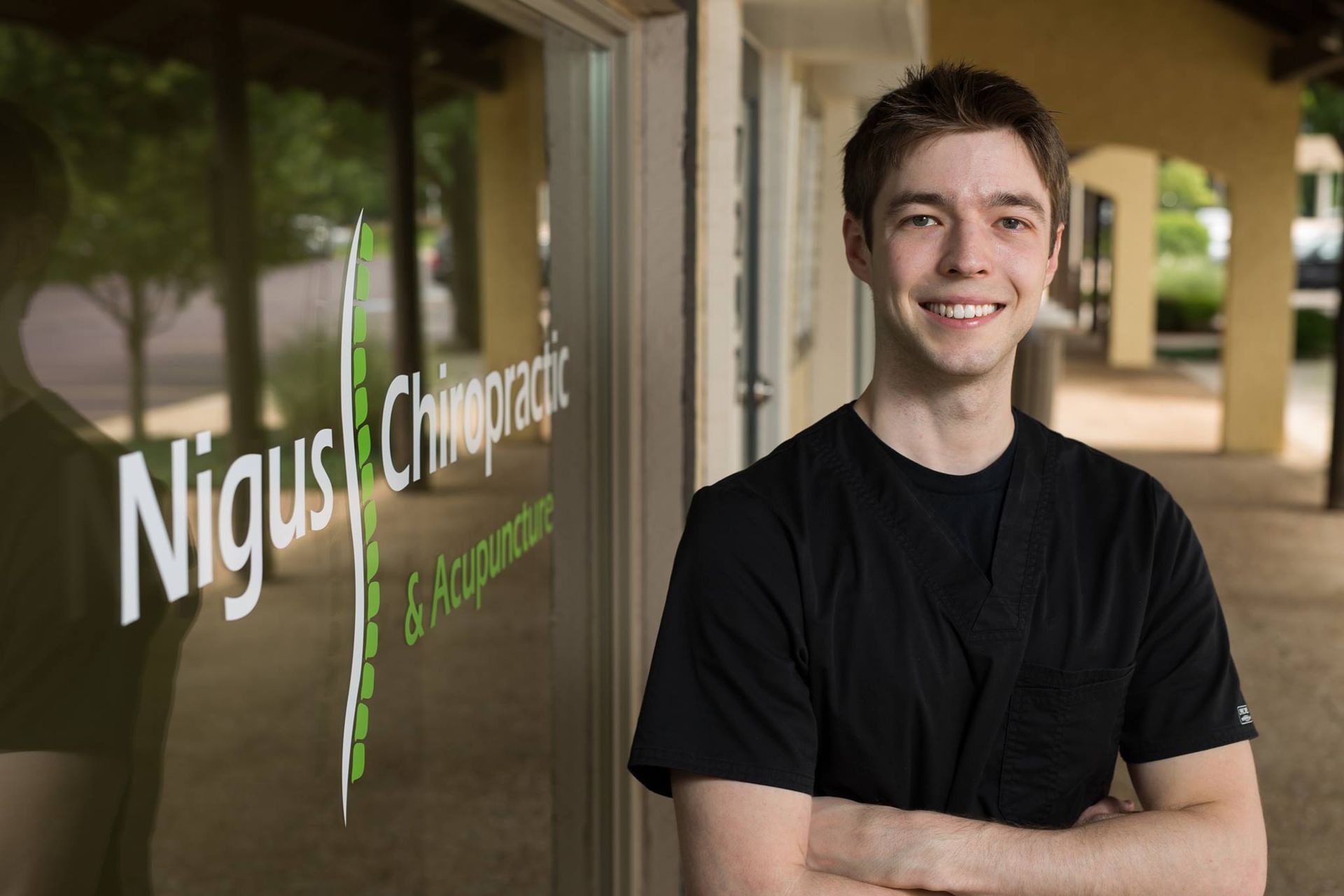- Sciatic Pain – Affects the sciatic nerve, causing pain, burning, or tingling sensations down the leg.
- Stiffness – Restricted movement and soreness caused by poor posture or joint misalignment.
- Sharp, Shooting Pain – Often due to pinched nerves or spinal disc issues.

Feel Your Best with Gentle, Effective Care
Don’t let pain hold you back! Whether you’re recovering from an injury, managing chronic discomfort, or looking to improve your overall wellness, we’re here to help.
📅 Same-day appointments available for existing patients!
📍 Serving: Overland Park, Leawood, Lenexa, Shawnee, and Olathe
📞
Call Now: (913) 953-5959

Office Hours
Mon-Thur: 9am - 1pm | 3pm - 6pm
Serving: Overland Park, Leawood, Lenexa, Shawnee, and Olathe
Struggling with Neck Pain in Overland Park, KS?
Get Relief from Neck Pain with Chiropractic Care
If you're dealing with neck pain in Overland Park, KS, you're not alone. The neck is one of the most flexible parts of your spine, but its range of motion also makes it prone to injury. Whether it's from a sudden jolt, poor posture, or repetitive strain, neck pain can disrupt your life in ways you never imagined.

Understanding Neck Pain in Overland Park, KS
Your neck, or cervical spine, consists of seven vertebrae that support your head, which weighs between 10 and 14 pounds on average. This delicate balance of flexibility and support makes your neck especially susceptible to pain and injury.
Neck pain isn't just about discomfort in your neck; it can also lead to symptoms like stiffness, headaches, muscle spasms, and even pain, numbness, or tingling in the shoulders, arms, and hands. In many cases, these symptoms can be mistaken for other conditions like carpal tunnel syndrome, especially in people who work at a desk or on a computer for long hours.
If you’re experiencing neck pain, it’s important to understand that relying on painkillers or temporary fixes like ice packs can mask the symptoms but won’t address the root cause of your pain. Chiropractic care can offer a natural, effective solution to not only relieve your neck pain but also improve your mobility and prevent future issues.
Common Causes and Symptoms of Neck Pain
Neck pain can have a variety of causes, and many of these are chronic, developing over time. Here are some of the most common causes and symptoms of neck pain:
- Achiness and Stiffness: The middle and lower neck are particularly prone to stiffness, especially with prolonged sitting or poor posture.
- Headaches: Misalignments in the neck can trigger headaches, particularly at the base of the skull, which may feel like tension radiating toward the forehead. Chiropractic adjustments can help prevent and relieve these headaches.
- Muscle Spasms: Poor posture or neck injuries often lead to muscle spasms as the muscles compensate for instability. These spasms can cause chronic pain and discomfort.
- Loss of Mobility: When your neck is misaligned or overused, you may experience difficulty turning your head or looking in certain directions.
- Disc Bulges: Degenerative conditions like arthritis can lead to disc bulges or herniations, which may send pain or tingling down the arms, similar to carpal tunnel syndrome.
- Injuries (Whiplash): A sudden movement, such as in a car accident, can strain the neck muscles and ligaments, often leading to long-term pain if not treated properly.
- Poor Posture: Prolonged sitting with poor posture, especially at a computer, can lead to neck pain, muscle spasms, and even headaches. Anterior head carriage (when the head juts forward past the shoulders) is common for office workers and can contribute to neck discomfort.
- Spinal Misalignments: Misalignments in the cervical spine cause uneven pressure on the vertebrae and surrounding muscles, leading to pain and reduced mobility.
- Stress: Stress often leads to muscle tension, particularly in the neck and shoulders. This “muscle guarding” is the body’s protective response, but it can contribute to chronic pain.
- Degenerative Diseases: As we age, conditions like osteoarthritis or spinal stenosis can cause degeneration of the cervical spine, leading to chronic neck pain.
Chiropractic Care for Neck Pain
At Nigus Chiropractic & Acupuncture, we focus on addressing the root causes of your neck pain through gentle, non-invasive treatments. Chiropractic adjustments help restore proper alignment to the spine, improving range of motion and reducing pain. By targeting misalignments and muscular imbalances, we can help relieve pain, reduce stiffness, and improve mobility.
Our treatments go beyond just spinal adjustments. We may incorporate other therapies such as the following:
- Posture Correction: Corrective exercises and ergonomic adjustments to help relieve strain on the neck and prevent future issues.
- Trigger Point Therapy: Soft tissue techniques to release tight muscles and alleviate pain caused by muscle spasms.
- Non-Needle Acupuncture: Effective for relieving stress and tension that contributes to neck pain and headaches.
Don’t Let Neck Pain Control Your Life
If you’re tired of living with neck pain and want a solution that addresses the cause, not just the symptoms, chiropractic care may be the right option for you. At Nigus Chiropractic & Acupuncture, we take the time to understand your unique condition and develop a personalized treatment plan to bring you lasting relief.
Schedule a consultation today and start your journey toward a pain-free neck!
- Same-day appointments available for existing patients!
- Call Now: (913) 953-5959
- Book an Appointment Today!
Take the First Step Toward Better Health
At Nigus Chiropractic & Acupuncture, we’re committed to helping you feel your best with personalized, gentle care. Whether you're seeking relief from pain, recovering from an injury, or focusing on long-term wellness, we're here to support you every step of the way.
- Same-day appointments available for existing patients!
- Proudly serving Overland Park, Leawood, Lenexa, Shawnee, and Olathe
Ready to Get Started?
Fill out the form below, and our team will reach out to schedule your visit!
Contact Us
We will get back to you as soon as possible.
Please try again later.
